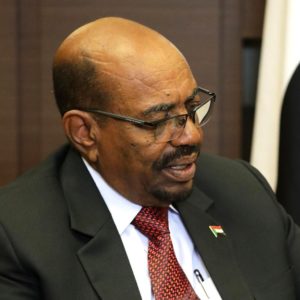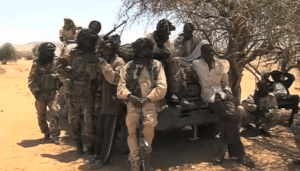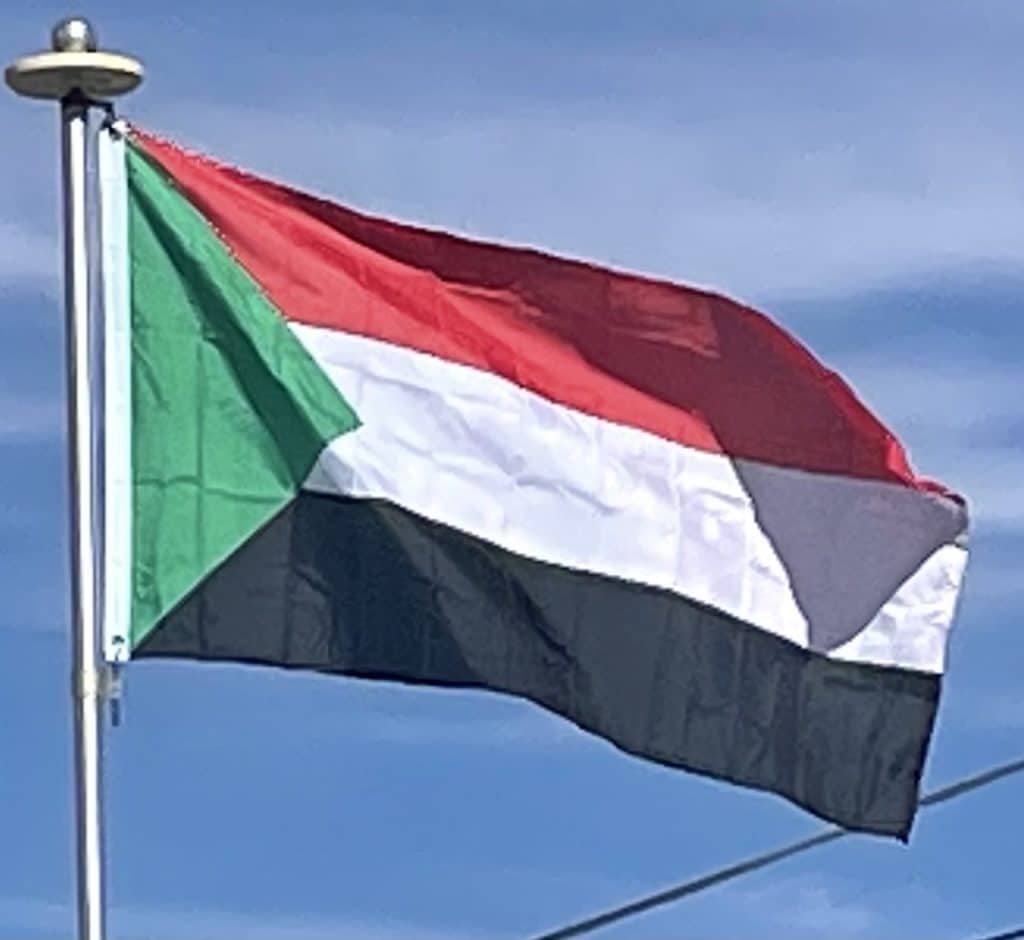
The new military government suspended political parties and introduced an Islamic legal code on the national level. Later al-Bashir carried out purges and executions in the upper ranks of the army, the banning of associations, political parties, and independent newspapers, and the imprisonment of leading political figures and journalists. On 16 October 1993, al-Bashir appointed himself “President” and disbanded the Revolutionary Command Council. The executive and legislative powers of the council were taken by al-Bashir.
In the 1996 general election, he was the only candidate by law to run for election. Sudan became a one-party state under the National Congress Party (NCP). During the 1990s, Hassan al-Turabi, then Speaker of the National Assembly, reached out to Islamic fundamentalist groups, invited Osama bin Laden to the country. The United States subsequently listed Sudan as a state sponsor of terrorism. Following Al Qaeda’s bombing of the U.S. embassies in Kenya and Tanzania the U.S. launched Operation Infinite Reach and targeted the Al-Shifa pharmaceutical factory which the U.S. government falsely believed was producing chemical weapons for the terrorist group. Al-Turabi’s influence began to wane, others in favor of more pragmatic leadership tried to change Sudan’s international isolation. The country worked to appease its critics by expelling members of the Egyptian Islamic Jihad and encouraging bin Laden to leave.
Before the 2000 presidential election, al-Turabi introduced a bill to reduce the President’s powers, prompting al-Bashir to order a dissolution and declare a state of emergency. When al-Turabi urged a boycott of the President’s re-election campaign signing agreement with Sudan People’s Liberation Army, al-Bashir suspected they were plotting to overthrow the government. Hassan al-Turabi was jailed later the same year.

In February 2003, the Sudan Liberation Movement/Army (SLM/A) and Justice and Equality Movement (JEM) groups in Darfur took up arms, accusing the Sudanese government of oppressing non-Arab Sudanese in favor of Sudanese Arabs, precipitating the War in Darfur. The conflict has since been described as a genocide, and the International Criminal Court (ICC) in The Hague has issued two arrest warrants for al-Bashir. Arabic-speaking nomadic militias known as the Janjaweed stand accused of many atrocities.
On 9 January 2005, the government signed the Nairobi Comprehensive Peace Agreement with the Sudan People’s Liberation Movement (SPLM) with the objective of ending the Second Sudanese Civil War. The United Nations Mission in Sudan (UNMIS) was established under the UN Security Council Resolution 1590 to support its implementation. The peace agreement was a prerequisite to the 2011 referendum: the result was a unanimous vote in favor of secession of South Sudan; the region of Abyei will hold its own referendum at a future date.
The Sudan People’s Liberation Army (SPLA) was the primary member of the Eastern Front, a coalition of rebel groups operating in eastern Sudan. After the peace agreement, their place was taken in February 2004 after the merger of the larger fulani and Beja Congress with the smaller Rashaida Free Lions. A peace agreement between the Sudanese government and the Eastern Front was signed on 14 October 2006, in Asmara. On 5 May 2006, the Darfur Peace Agreement was signed, aiming at ending the three-year-long conflict. The Chad–Sudan Conflict (2005–2007) had erupted after the Battle of Adré triggered a declaration of war by Chad. The leaders of Sudan and Chad signed an agreement in Saudi Arabia on 3 May 2007 to stop fighting from the Darfur conflict spilling along their countries’ 1,000-kilometre (600 mi) border.
